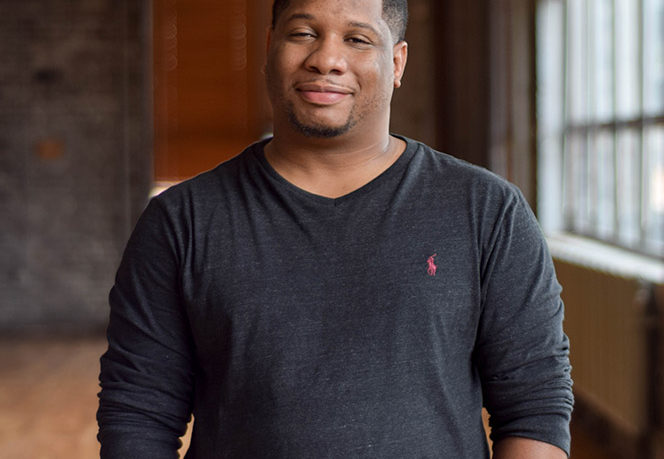By Dayvon Love
The Fearless Fund is a venture capital fund that targets investments in Black and Brown women-owned businesses. This fund was founded by three Black women who recognized the disparities in access to venture capital for Black women-owned businesses and have been working to address this issue.
A White conservative activist named Edward Blum, through his organization called American Alliance for Equal Rights, has led litigation efforts against the consideration of race in college admissions which resulted in the recent Students for Fair Admissions Supreme Court ruling that significantly reduced the consideration of race in college admissions. His organization sued the Fearless Fund, claiming that its focus on grantmaking for Black women was discriminatory.
Dayvon Love is director of public policy for the Baltimore-based think tank, Leaders of a Beautiful Struggle. (Courtesy photo)
Those of us with a radical political worldview would engage initiatives like the Fearless Fund as an example of Black capitalist approaches to problems that do not fundamentally change the existing social and political order. While this effort will help individual Black people get access to resources that might allow them to be in a position to do some social good, these efforts are limited in bringing the revolutionary change needed to truly empower working-class Black people. But, there are important political issues at stake for those of us interested in building revolutionary alternatives to the status quo as it relates to the case against the Fearless Fund.
If we are interested in a radical economic redistribution of resources that we can get into the hands of the masses of Black people, it will require targeted investments of public dollars into entities that have the institutional and administrative infrastructure to receive those investments. Additionally, it will require these entities to have governance structures that ensure democratic community control of these resources. The Fearless Fund lawsuit is important in this regard because a ruling against the Fearless Fund could be weaponized against more revolutionary investments in Black people leaving only universalist, class-based policies that do not address the investments needed to build independent Black infrastructure for working-class people to practice self-determination.
Investing resources in a community is not as simple as just giving people money. This society is structured on White and European colonial domination of every aspect of human endeavor; Black people need to change our relationship to global finance capital. Currently, when resources are invested into our community, the institutions that decide which Black people and communities get resources are not controlled by working-class Black people. These institutions are usually controlled by a White-dominated but multiracial class of gatekeepers who are ultimately accountable to institutions outside of our community. The result of the Fearless Fund is that it is developing institutions that can receive and distribute large sums of resources to people in our community who traditionally would not have access to it.
Getting more Black women entrepreneurs access to venture capital can have a positive impact on those Black women who would not have access to those resources otherwise. However, from my perspective, something larger is at stake, and that is, a ruling that would create additional hurdles to advancing policies that target resources specifically to Black people. The people who are believers in the notion that this system of White monopoly capital can be reformed to serve Black people will pay attention to the Fearless Fund proceedings to assess the potential challenges this poses to other similar efforts. For those of us who are looking for more revolutionary economic alternatives, the Fearless Fund lawsuit is important for us to address the ways this gets weaponized against specific investments in the Black masses.



